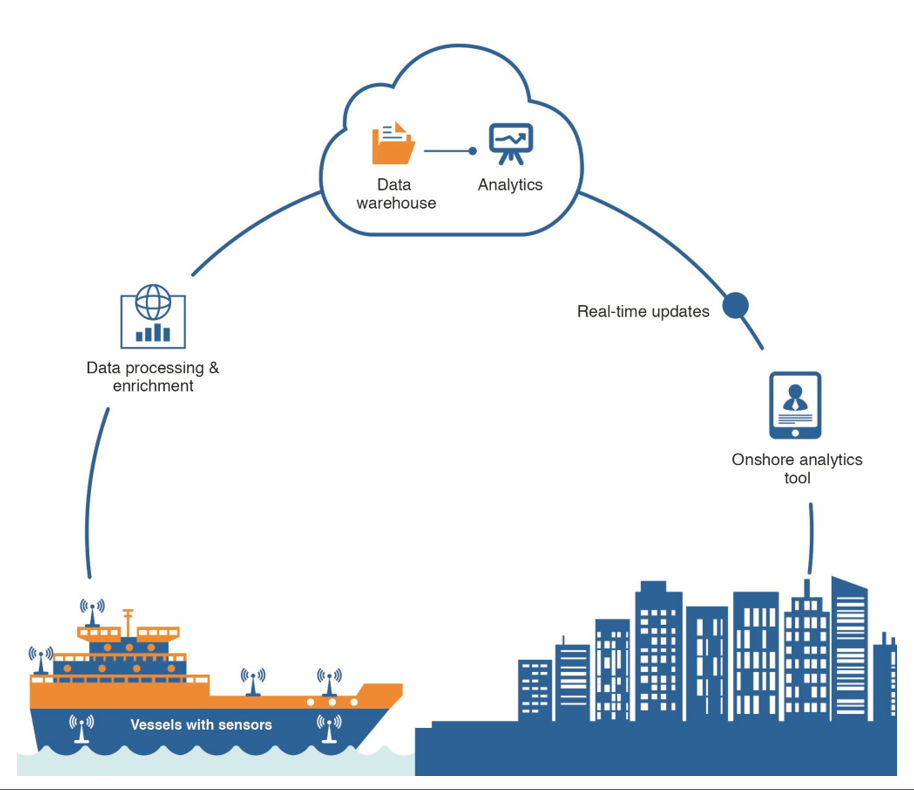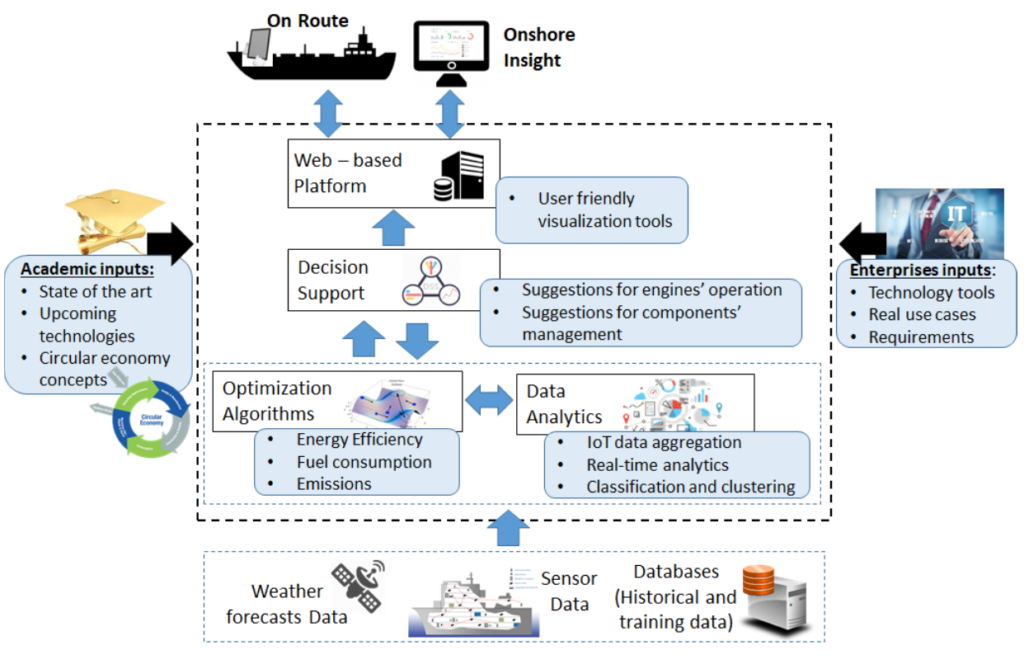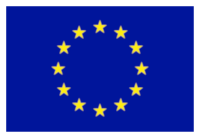Developing a framework for optimized energy efficiency, fuel consumption and emissions control incorporating the concept of Circular Economy is the main goal of Smartship. ITML, as a technology provider and specialist in Big Data technologies, will develop and deliver the Advanced Data Analytics Module, leveraging real-time analytics and machine learning techniques for real-time events detection and evaluation of vessel’s performance.
The recent and on-going global outbreak of the Coronavirus pandemic (COVID-19) has had a major impact on global shipping, affecting all shipping sectors from passenger ships to container ships and oil tankers. Today more than ever, shipping companies are called to adopt new innovative practices so as to reduce the costs and secure their activities continuation. On the other hand, shipping as an industry has long traditions of continuously adopting and adapting to new technologies that allow shipping companies to maintain their competitiveness but also comply with the latest regulations applied for CO2 emissions. During the last years, digital evolution is shaping the maritime future in every possible aspect, taking advantage of modern ships design and new technologies. Digitalization is not a new concept; it has already transformed almost every industry, as it offers great opportunities for efficiencies, growth, and innovation.

The maritime industry now, more than ever, relies on Information and Communication Technologies (ICT). ICT systems and IoT devices make shipping more efficient by using interconnected sensors and unified platforms, allowing the real-time monitoring of systems on board and offshore. Succinctly, they allow more data to be collected, processed, analyzed, and integrated into the decision-making process of ship operations, enhancing the overall management of the vessel with respect to energy efficiency, predictive maintenance, emissions control, and fuel consumption efficiency. Additionally, the exchange of data between the vessel and the coast is more reliable and immediate.
Alongside with the necessity of using innovative technologies in maritime for the industry to retain competitiveness and sustainability, mitigation measures for the unwanted environmental pollution that goes hand in hand with the sea transportation must be enforced. Based on a report[1] from the International Energy Agency (IEA), it is estimated that between 2010 and 2019 the shipping sector emitted about 800 Mt CO2 per year, which corresponds to nearly 3,2% of annual global[2] CO2 emissions. The European Union, in an effort to get shipping in line with the Paris Agreement[3], has enforced various laws such as the Regulation on Monitoring, Reporting and Verification (MRV)[4] of CO2 emissions that entered into force in 2018. Moreover, initiatives such as the International Maritime Organization (IMO) strategy regarding the reduction of Greenhouse Gas (GHG) emissions[5], IMO’s Data collection system for fuel oil consumption of ships[6], as well as the Energy Efficiency Design Index (EEDI) by IMO were established aiming at a decrease of CO2 emissions while maintaining the competitiveness of the shipping sector intact.
The SmartShip project walks on the road that EU has carved out and brings together specialists in the fields of ICT and shipping both from academic and non-academic sectors who have joined forces targeting to materialize the next-generation paradigm for the maritime industry. In full respect to the implementation of the requirements of maritime sector regulations, Smartship aims at offering a cost-effective and sustainable solution for the shipping industry by capitalizing on (i) available “Commercial of-the-self” (COTS) technologies, which are packaged solutions adapted to satisfy the needs of the purchasing organization, rather than the commissioning of custom-made solutions, and (ii) limited “Real-time data” (RTD). In this respect, a holistic integrated ICT-based framework for the sustainable, individualized and completely automated energy management of ships is introduced, offering a multi-layer optimization in the fields of fuel consumption, energy efficiency and emissions control.
Smartship’s added value in comparison to other EU funded projects under the same call is the pairing of Circular Economy[7] (CE) and smart ICT-enhanced maritime fleet management services. Its fundamental goal is to bring together the ICT field and the Circular Economy concept, focusing on energy efficiency and emissions management within the maritime sector. CE is a recognized concept for sustainable growth and is increasingly gaining ground globally. Furthermore, it is expected that CE will have a significant impact on infrastructure, which is the backbone in maritime. With this respect, Smartship will adapt its activities and services to be aligned with the CE guidelines.
In SmartShip, ITML will develop the Advance data analytics module. The specific module will be used to collect, aggregate, and analyze weather and historical data, as well as data provided by a network of interconnected sensors on the vessel. Real-time analytics will be used for real-time detection of complex events. Finally, machine learning algorithms will be deployed for the classification and clustering of the collected data. On the other hand, optimization algorithms will be used to evaluate vessel’s performance under different voyage scenarios with respect to energy efficiency, fuel consumption and emission control.


SmartShip is an EU Η2020 funded Marie Skłodowska-Curie Research and Innovation Staff Exchange (MSCA-RISE) project under the call H2020-MSCA-RISE-2018, GA number 823916. For more information, please visit the project’s website.

The article reflects only the author’s view and the sole responsibility of this publication lies with the author.
The Research Executive Agency and the European Commission are not responsible for any use that may be made of the information it contains.
[1] https://www.iea.org/data-and-statistics/charts/co2-emissions-from-international-shipping-2010-2019-and-in- the-sustainable-development-scenario-2030
[2] https://www.iea.org/articles/global-co2-emissions-in-2019
[3] https://unfccc.int/process-and-meetings/the-paris-agreement/the-paris-agreement
[4] https://eur-lex.europa.eu/legal-content/EN/TXT/?uri=celex%3A32015R0757
[5] https://www.imo.org/en/MediaCentre/HotTopics/Pages/Reducing-greenhouse-gas-emissions-from-ships.aspx
[6] https://www.imo.org/en/OurWork/Environment/Pages/Data-Collection-System.aspx
[7] https://ec.europa.eu/environment/circular-economy/pdf/new_circular_economy_action_plan.pdf